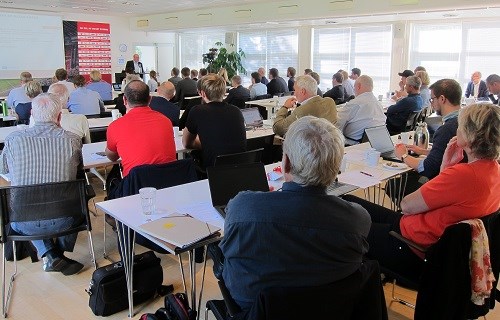Democracy and diversity: Deficits in Danish sports?
The Danish results from the National Sports Governance Observer (NSGO) project that has analysed the governance procedures in national sports federations in nine European countries plus Brazil caused broad debate when the results were presented at a seminar organised by the Danish Institute for Sports Studies / Play the Game on 18 September.
At the seminar, held at the headquarter of the Danish FA, the Danish researchers revealed that the Danish federations score very well in the analysis, but that they are not number one among the countries that have taken part in the EU-supported project.
Norway is the only higher scoring country, and the survey indicates that certain democratic processes in the Danish federations could be improved, including the introduction of nomination committees and more diversity in boardrooms.
Despite good Danish and international experience with nomination committees as a tool for ensuring diversity in boards, several attendees, including DIF's chairman Niels Nygaard, were skeptical about whether such committees would fit into the Danish way of managing elections for decision-making bodies in sports.
Compared to neighboring countries Norway and Sweden, women are still poorly represented at the top of many Danish federations, and according to Pia Holmen, Director of Danish Swimming Union and member of the European Swimming Union Association, LEN's Board, the small number of women on the boards is a challenge that should be taken on.
"The biggest challenges in Danish sport is diversity. We have discussed this for twenty-five years now, and I do not think it has gotten any better," Pia Holmen said to Play the Game.
Participants at the seminar also received input from experts outside of sports, including Lars Liebst, Managing Director of Tivoli in Copenhagen, who emphasised that a board and its members have a great responsibility. He also underlined that diversity and multiplicity are important in the composition of boards.
"Diversity on a board is a strength. It's like a football team: There must be some who can score goals. There must be some who can defend. And there must also be one that can keep the goal clean. And then you have to put together a team that is a team and go for the various competencies," said Liebst, who has served as chairman of committees on good governance in the cultural sector set up under the Danish the Ministry of Culture.
Hard law or soft law
In addition to the discussion of democratic processes, the schism between 'hard law' and 'soft law' as well as the risk of overregulation became the focal point for several of the debates.
Per Gunslev from the Danish Corporate Governance Committee presented a number of the recommendations that exist for Danish stock listed companies as an alternative to ‘hard law’ legislation in the field. He emphasised that the companies do not have to follow all recommendations, but based on the principle 'follow or explain', they are required to explain why they do not.
Several participants asked questions about to what extend the federations can and should comply with the NSGO project guidelines for good governance, and called for some flexibility, e.g. based on a federation’s size and organisational capacity, which can vary a lot.
Focus on good governance is necessary
The Danish FA (DBU) is the federation among those surveyed in the Danish study that comes out with the best results. DBU Chairman Jesper Møller is pleased with the outcome, but emphasised that there is still work to do.
According to both Møller and chairman of the Danish NOC (DIF) Niels Nygaard, it is important to discuss good governance in Danish sports.
"First of all, we receive a lot of public resources, which deserve to be used in a proper and transparent manner. Secondly, we also have our members who deserve that we do things openly,” said Nygaard, who also believes that Danish sport should actively work to improve the management culture in sports internationally.
"Unfortunately, many things are happening internationally, which are not in line with the way we in Denmark believe they should be. Therefore, we must take an active part in helping this change in a better direction."
Major engagement
Despite different opinions on some of the conclusions, the 22 Danish sports federations represented at the seminar generally welcomed the survey and several associations expressed belief that the NSGO tool serve as a good basis for debate on existing structures.
This was well received by Jens Sejer Andersen, international director of Play the Game and project manager of the NSGO project.
"It made great sense to feel the sincere commitment of all the participating federations. It is encouraging that the word governance is no longer perceived as threatening, but as a way to create improvements in one's own organisation," said Andersen.
The NSGO project concludes in November with an international seminar in Leuven, Belgium, where the overall results from the contributing countries are presented. But the development of the NSGO tool continues, says Andersen:
"We will now work on the positive and critical comments that came to the table today and at the other national NSGO seminars. Our task will be to further develop the tool in the coming years and hopefully spread it to the over 20 new countries that have expressed serious interest in becoming part of the project."
Short video from the seminar:






